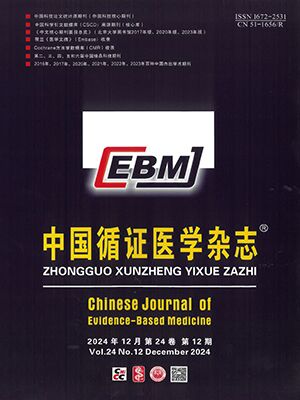Objective To evaluate the effectiveness and safety of chemotherapeutics bladder irrigation (CBI) after transurethral resection (TR) in the treatment of cystitis glandularis (CG).
Methods Databases including MEDLINE, The Cochrane Library, EMbase, VIP, CNKI and CBM were searched from January 2001 to November 2011 to collect randomized controlled trials (RCTs) and case-control studies (CCSs) on pirarubicin or mitomycin bladder irrigation after TR in the treatment of CG. Two reviewers independently screened articles according to the inclusion and exclusion criteria, extracted data and evaluated the quality of the included studies. Then meta-analysis was performed using RevMan 5.0.
Results A total of 11 articles involving 5 RCTs and 6 CCSs were included. Among the total 1032 patients involved, 497 patients were in the control group treated by TR alone, while the other 535 patients were in the treatment group given CBI after RT. There were two subgroups, one involving 347 patients irrigated by pirarubicin in 7 studies, and the other involving 188 patients irrigated by mitomycin in 4 studies. The results of meta-analysis showed: (a) pirarubicin bladder irrigation after TR could increase both short-term and long-term cure rates and decrease both short-term and long-term relapse rates, but no significant differences were found in both short-term and long-term improvement rates, compared with the control group. As for the safety, pirarubicin was similar to the control group in the incidence of urinary irritation, but it was superior in the incidence of bloody urine; and (b) mitomycin bladder irrigation after TR could increase long-term cure rate and decrease long-term relapse rate, but no significant differences were found in short-term cure rate and short-term improvement rate, compared with the control group. Mitomycin was similar to the control group in incidence of urinary irritation and bloody urine. Sensitivity analyses indicated the outcomes regarding to some indexes in different studies were inconsistent.
Conclusion Based on the current evidence, pirarubicin or mitomycin bladder irrigation after TR can increase long-term cure rate and decrease long-term relapse rate in treating CG, but pirarubicin tends to easily cause bloody urine. For the inconsistent outcomes of different studies, the results of this meta-analysis are instable and highly possible to be inconsistent to the future outcomes, hereby it is uncertain of the better effectiveness of CBI after, TR compared with TR alone, and more high-quality and large-scale RCTs are needed to be performed.
Citation: HOU Lin,QU Rui,REN Shangqing,DENG Shi,SHEN Pengfei,DONG Qiang. Chemotherapeutics Bladder Irrigation after Transurethral Resection for Cystitis Glandularis: A Meta-Analysis. Chinese Journal of Evidence-Based Medicine, 2012, 12(10): 1251-1260. doi: 10.7507/1672-2531.20120195 Copy
Copyright © the editorial department of Chinese Journal of Evidence-Based Medicine of West China Medical Publisher. All rights reserved




